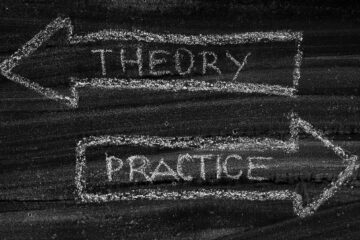Cross-posted from Education Week
Linda Darling-Hammond, John Jackson and I are the co-authors of a commentary column that was published this week in Education Week. It focuses on the one thing that the two political parties appear to agree on in their proposals to reauthorize No Child Left Behind (NCLB): to keep those provisions that require year-by-year accountability testing. That, we think, would be a great mistake. Keeping those provisions of the law would virtually guarantee continued poor performance of our students relative to the top-performing countries and would, in addition, constitute and magnify a real injustice for our low-income and minority students. It all comes down to a very simple thesis, which can be summed as follows.
Teachers teach what is measured. This is especially true when accountability systems are used in which student performance has strong consequences for teachers. The United States now has the strongest such system in the world. The United States is also addicted to cheap tests that do a poor job of measuring the kinds of higher order thinking skills and in-depth command of subject matter most needed in high wage economies like the United States. The more pressure we put on teachers to produce high student performance on these tests, the more likely it is that we will depress performance on the very skills they most need. Other countries whose students perform at much higher levels than ours use more expensive, higher quality tests that are capable of testing the kinds of knowledge and skills that our students need to be successful under current global economic conditions. We could be using such tests, but cannot afford to do so under current federal law, because that law requires our schools to test students every year. The top-performing countries test only two or three times in the course of student’s whole career in school. If we did that, our states and districts could afford much better tests at no increase in total cost. Our conclusion: The next version of the Elementary and Secondary Education Act (ESEA) should require the use of tests that do a much better job of measuring higher order thinking skills, including the ability to apply knowledge to unfamiliar problems, and, at the same time, should require accountability testing no more than three times in a student’s career, thereby freeing up funds to purchase the high quality tests the country so urgently needs.
John Jackson, one of this country’s most prominent civil rights leaders in the arena of education, signed the commentary column because he, like Linda Darling-Hammond and me, see this not just as a crucial education issue, but also as a civil rights issue. The proposals from the two parties for the reauthorization of NCLB essentially exempt all but the worst performing schools from the draconian provisions of the Act. The schools to which the strongest sanctions would apply would be those that enroll the highest proportions of low-income and minority students. If the tests being used essentially emphasize the lowest level skills, that means that American teachers would have very strong incentives to set the lowest performance targets for the students from the lowest-income, most minority families. That would amount to an especially cruel policy that would effectively lock in the growing disparities in the achievement gap for many years to come.
Take a look at the chart below. They array a variety of tests in common use around the world on a single cost scale. The costs—as is so often the case—are strongly associated with the quality of the tests. The standard multiple-choice, computer scored tests place on the bottom in quality and cost. The College Board Advanced Placement Tests and the University of Cambridge International General Certificate of Secondary Education exams, widely regarded as setting a benchmark for lower division high school quality, are far above the standard set by our basic skills tests. Now take a look at the estimated costs of the tests being developed by the two state testing consortia. You will see that their costs hover in the vicinity of those charged for the far inferior standard basic skills tests, and come in far below those of tests widely regarded as the best in the world. Virtually all observers believe that the tests the consortia are working on will be far better than the tests they are designed to replace. It is patently absurd that some states are pulling out of their testing consortium on the grounds that these tests will cost too much. This display makes it clear that those tests will be a real bargain if they come in at their price point targets. But many worry that the continued pressure on the two consortia to contain the costs of their tests will prevent the consortia from delivering tests that reach the goals originally envisioned for them. That would be a shame, because, for only a modest increase in cost, the consortia might be able to deliver tests that measure much more of the skills our students will need than will be possible otherwise. And they would still be a great bargain.
To my way of thinking, there is no issue in education policy more important right now than this one. If we end up measuring skills far below those our students really need to be successful and tie our accountability systems to those deeply flawed measures, then nothing else we do will make it possible for this country to match the performance of our most successful competitors. Set these low standards in concrete for our low-income and minority students, and we set the performance gap between them and the majority of our students in concrete. Here’s the data:
This table has been prepared by Rich Cannon of the NCEE staff, with assistance from David R. Mandel. They have cut the estimated package cost of the consortia tests in half to make them comparable to the single subject costs of the other tests. The current state median costs are based on research conducted by the Brookings Institution, which is in turn based on test cost per exam data collected by the PARCC consortium from its member states. The recently published estimated prices by PARCC and SBAC each use different estimating methods. The figures presented here offer the closest approximation currently available of the delivery of comparable services from each consortium.






